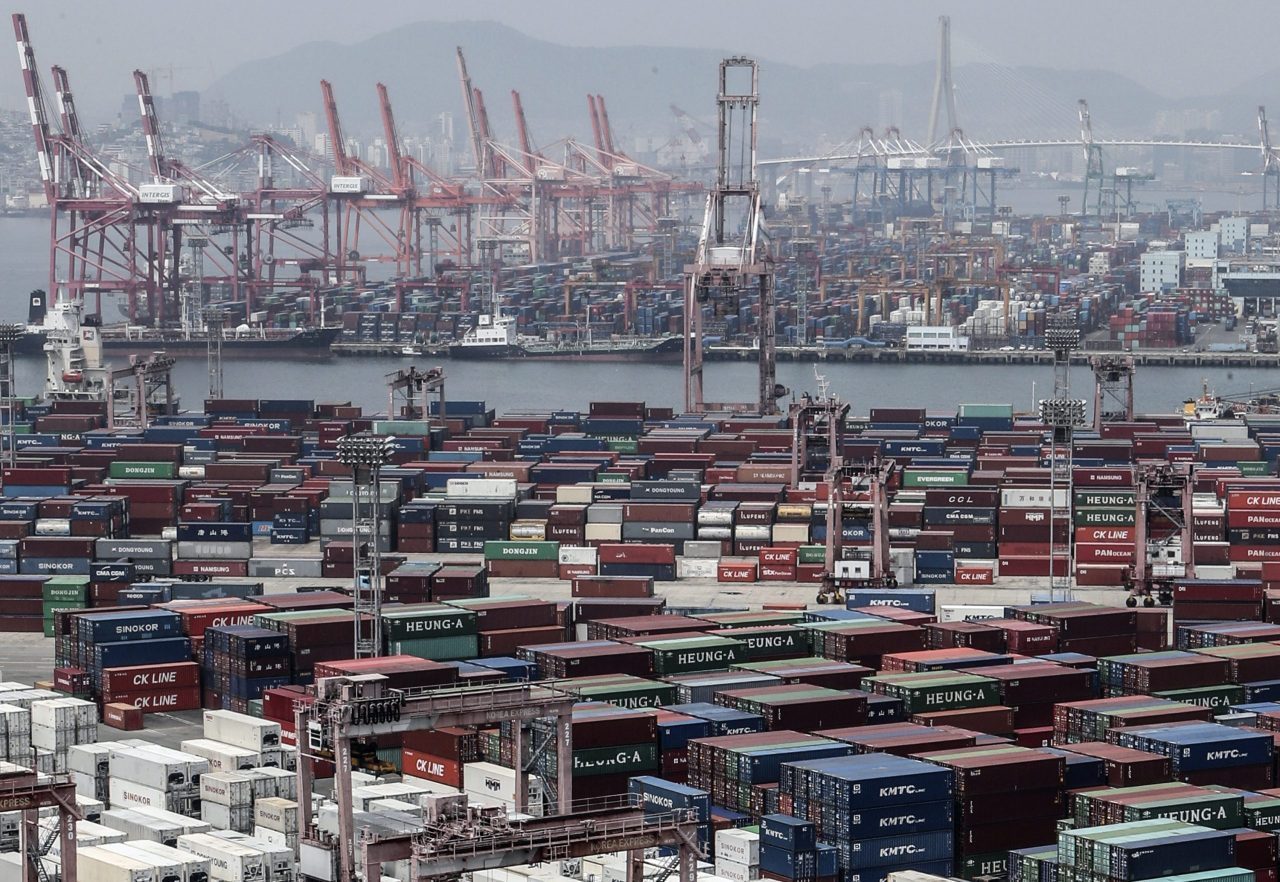 |
This file photo, taken June 4, 2020, shows stacks of cargo containers at South Korea's largest seaport of Busan, 450 kilometers southeast of Seoul. (Yonhap) |
South Korea's economy grew slightly faster than expected in the fourth quarter of 2020, although this had no effect on the overall economic contraction for last year amid the coronavirus pandemic, central bank data showed Thursday.
The nation's economy expanded 1.2 percent in the fourth quarter from three months earlier, 0.1 percentage point higher than what has expected, according to preliminary data from the Bank of Korea (BOK).
Asia's fourth-largest economy contracted 1 percent last year, unchanged from the bank's earlier estimate.
The BOK has expected South Korea's economy to stage a modest recovery, supported by exports and investment, but its job markets would recover at a slow pace as the pandemic continues to hit the service sector.
South Korea's exports rose 9.5 percent in February from a year earlier to extend their gains for the fourth consecutive month on robust shipments of chips, autos and other key products.
"On the production side, manufacturing rose by 3.0 percent, mainly due to increases in chemical products and electrical equipment," the BOK said in a statement.
Last year, the manufacturing sector added only 0.3 percent. Government spending gained 2.3 percent on-year, while private spending plunged 6.5 percent, according to the central bank.
Meanwhile, the BOK said the country's gross national income (GNI) fell 0.3 percent in 2020 from a year earlier.
"Real GNI fell by 0.3 percent as the terms of trade improved, although real net factor income from the rest of the world decreased," the BOK said.
The BOK predicted that South Korea's economy would grow 3 percent this year.
Last year, the nation's per capita income stood at $31,755, down 1.1 percent from a year ago.
Nominal GDP reached 1,924.5 trillion won in 2020, up 0.3 percent from a year earlier.
In terms of US dollar value, however, nominal GDP fell 0.9 percent on-year in 2020.
The BOK blamed the Korean currency's strength against the US dollar to the decline in nominal GDP in terms of the US dollar.
The GDP deflator, a gauge of inflation, rose 2.4 percent on-year in the fourth quarter of last year, accelerating from a 2 percent gain three months earlier. (Yonhap)








